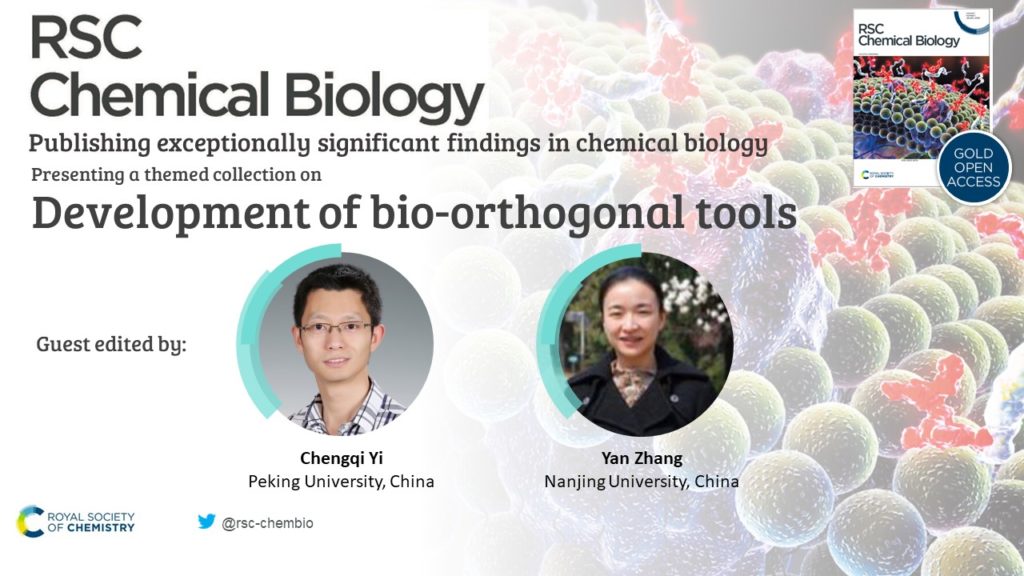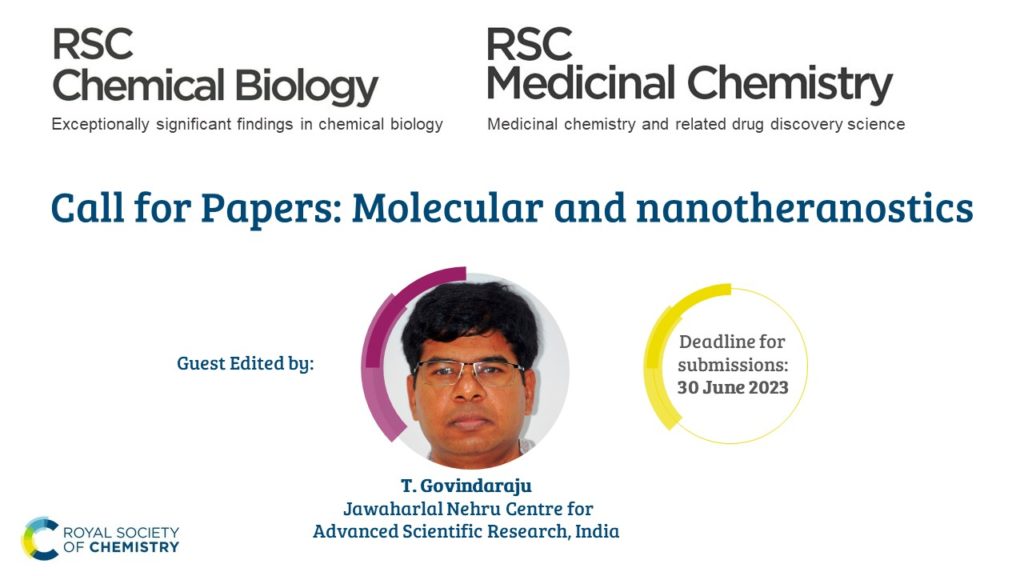
We’re pleased to announce that a new themed collection from RSC Chemical Biology has now been published online.
Guest-edited by Chengqi Yi (Peking University, China) and Yan Zhang (Nanjing University, China), this collection highlights work on bio-orthogonal chemistry, reactions and probes in labeling, manipulating, imaging and sequencing of protein, DNA, RNA and bioactive metabolites.
The article line-up is provided below. All articles in RSC Chemical Biology are open access and free to read.
Editorial
Introduction to ‘Development of bio-orthogonal tools’
Yan Zhang and Chengqi Yi
RSC. Chem. Biol., 2022, Advance Article, DOI: 10.1039/D2CB90045A
Reviews
Labeling and sequencing nucleic acid modifications using bio-orthogonal tools
Hui Liu, Yafen Wang and Xiang Zhou
RSC. Chem. Biol., 2022, 3, 994–1007, DOI: 10.1039/D2CB00087C
Imitate to illuminate: labeling of bacterial peptidoglycan with fluorescent and bio-orthogonal stem peptide-mimicking probes
Huibin Lin, Chaoyong Yang and Wei Wang
RSC. Chem. Biol., 2022, 3, 1198–1208, DOI: 10.1039/D2CB00086E
Papers
A library of Rhodamine6G-based pH-sensitive fluorescent probes with versatile in vivo and in vitro applications
Benton Swanson, Margaret Durdan, Miranda Eberle, Seth Woodbury, Ava Mauser, Jason Gregory, Boya Zhang, David Niemann, Jacob Herremans, Peter X. Ma, Joerg Lahann, Megan Weivoda, Yuji Mishina and Colin F. Greineder
RSC. Chem. Biol., 2022, 3, 748–764, DOI: 10.1039/D2CB00030J
Methyltetrazine as a small live-cell compatible bioorthogonal handle for imaging enzyme activities in situ
Diana Torres-García, Merel A. T. van de Plassche, Emma van Boven, Tyrza van Leeuwen, Mirjam G. J. Groenewold, Alexi J. C. Sarris, Luuk Klein, Herman S. Overkleeft and Sander I. van Kasteren
RSC. Chem. Biol., 2022, 3, 1325–1330, DOI: 10.1039/D2CB00120A
We hope you enjoy this new themed collection from RSC Chemical Biology.


